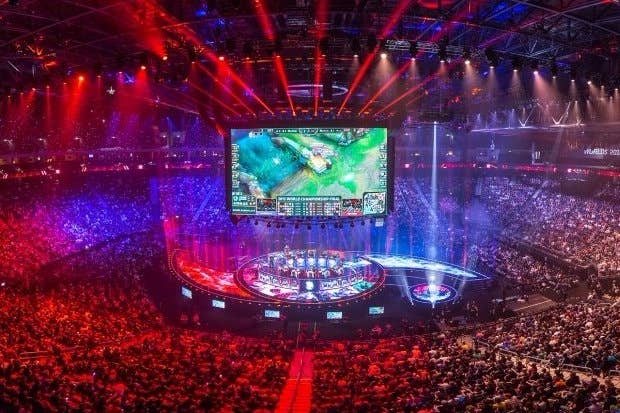Riot commits to revenue sharing with LoL eSports players
"We recognize that the current ecosystem isn't consistently profitable yet for team owners or for the league"
Riot Games has committed to giving a larger proportion of its revenue to eSports teams and players, in an attempt to ensure a "stable future" for League of Legends as a professional sport.
In a detailed post published yesterday, Riot acknowledged that the current League of Legends eSports scene isn't "consistently profitable yet for team owners or for the league." This is in no small part due to rising costs, as growing investment and interest in the eSports has prompted an increase in salaries.
"Motivated owners in the [League of Legends Pro League] have been trying to be more competitive globally, in part by importing star players at high salary, which has led to a similar increase in salaries in leagues like the LCK [LoL Champions Korea] as they try to protect their homegrown talent," the company said. "That investment is a positive thing, especially for pros, but we understand it creates pressure for teams juggling costs in the short-term and we want to help them avoid cutting pro salaries and support."
Riot is addressing the issue by pledging to, "accelerate some of our longer-term economic tactics to help address short-term pain felt by many of our partners." In short, this means Riot giving a larger share of its revenue - which Fortune estimated to be $1.6 billion in 2015 - to teams and players, starting with the Worlds 2016 tournament this month.
"We recognize that we can help rebalance the scene by accelerating some of our longer-term economic tactics to help address short-term pain felt by many of our partners"
These new revenue streams will include: 25% of sales from the Championship skin and Championship Ward being added to the World prize pool, which would have "more than doubled" the pool at last year's tournament; 25% of revenue from each year's Challenger skin being added to the Mid-Season Invitational prize-pool; the introduction of more diverse revenue sharing opportunities through the introduction of team-branded in-game items.
There are more details in Riot's official statement, but the company will attempt to guarantee a certain amount of revenue for teams immediately. "In 2017, each league will set aside a minimum to each of its teams as it determines appropriate based on regional needs. For example, the EU [League Championship Series] will have a minimum revenue amount of €100,000 per team for the full season, of which 50% will go to players as supplemental income on top of their existing salaries."
At Casual Connect this year, the CEO of eSports broadcaster Maestro, Ari Evans, expressed the need for greater financial stability within the emerging industry. "Despite how big [eSports] seems, it's also tiny in terms of revenue - very small," he said. "A lot of companies and startups in this space are kinda having trouble figuring out how to monetise it. Most eSports leagues run at a loss.
"They're not a profit centre. They're a loss leader as a marketing tactic, to push the other main revenue streams of these titles - primarily in-game transactions."
Indeed, while Riot's new strategy will give more money to the players and teams that keep the eSports scene alive, it directly follows a public dispute between the company and a prominent figure from that community. As Kotaku reported last month, Team SoloMid owner Andy "Reginald" Dinh publicly criticised Riot's pay structure for the LoL Championship Series (LCS). "I would like to see higher prizing and more infrastructure for the players," Dinh said. "A huge issue is the revenue opportunities for the teams." Riot co-founder Marc Merrill responded negatively to those comments, questioning the amount Dinh had invested in, "other eSports where he is losing money."
Dinh killed the debate with another response, where he laid out the ways that Riot has become "out of touch" with its own eSports ecosystem. "Over time, LCS has become more demanding and restrictive and the dynamics of a mutually beneficial relationship have become more one-sided," Dinh said in a long Twitter post. "LCS told team sponsors, which are a necessary source of revenue, that they can't even go backstage to watch the players compete. Teams can't have sponsor branding on beverages or hats. Logitech is one of our greatest and most supportive sponsors and they simply can't get visibility through us competing in LCS because we can't wear their headsets while competing. We had to push endlessly to get permission for our staff simply to be able to film backstage."
Merrill's final statement was effectively a retraction, acknowledging that, "League esports (in its current form) doesn't provide the long term security and sustainability that we ultimately aspire to for teams and pros."

